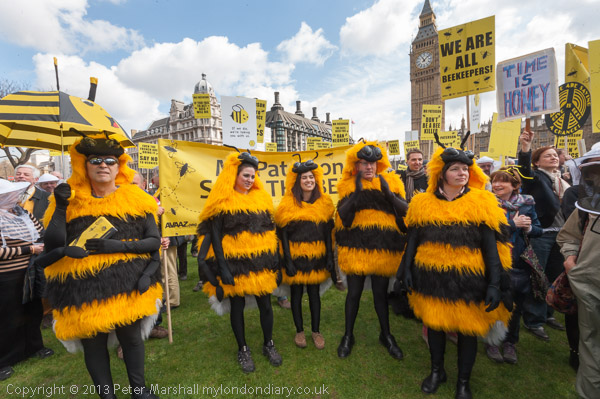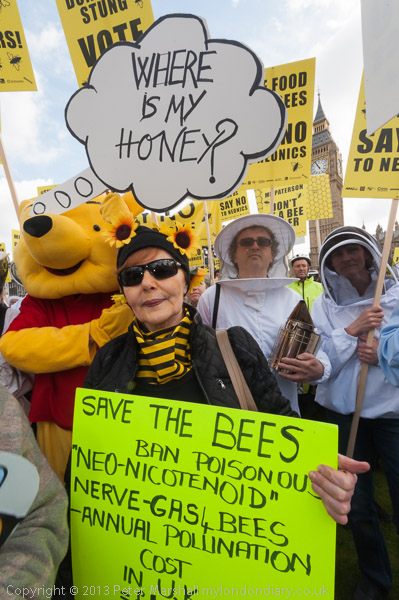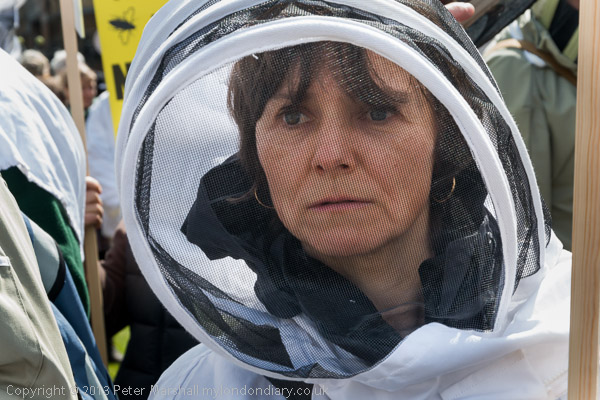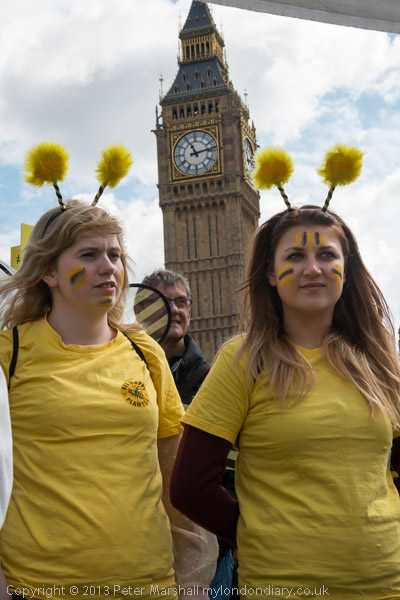Save the Bees: On Friday 26th April I joined several hundred beekeepers and environmentalists outside Parliament, “many in bee veils and with flowers and fruit that rely on bee pollination to urge DEFRA’s Owen Paterson to back a ban on bee-killing neonicotinoid pesticides in Monday’s EU vote.”
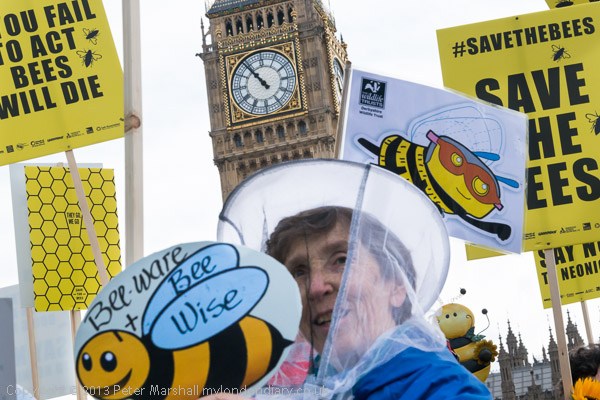
These systemic pesticides are absorbed by plants and taken to their leaves and flowers including nectar and pollen. They kill insects by attacking their central nervous systems but there are also serious sub-lethal effects which for bees, including “difficulty navigating, learning, and foraging, suppressed immune response, lower sperm viability, shortened lifespans of queens, and reduced numbers of new queens produced.”
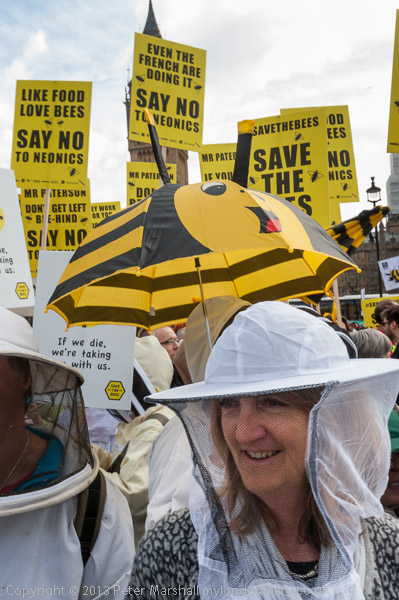
They disrupt to complex systems by which bees are able to communicate with each other about good sources of nectar, to fly to these and to return to the hive – and our worker bees can simply get lost.
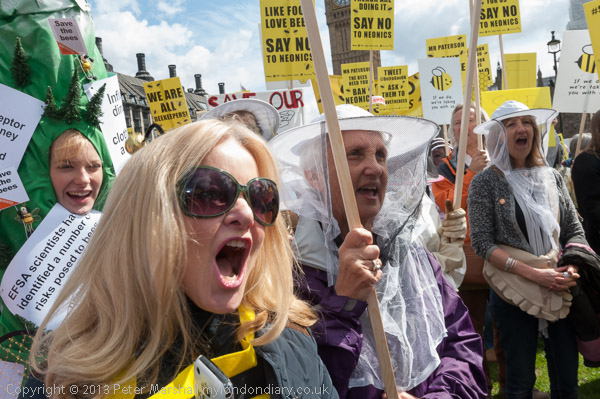
As well as being absorbed by the commercial crops on which they are sprayed, these water-soluble insectides run off into ditches, streams and rivers and are then absorbed by plants growing in the wild.
These are not the only threats to our bee population, also endangered by climate change, habitat loss, invasive bees and other species, parasites and diseases spread in intensive commercial bee farming.
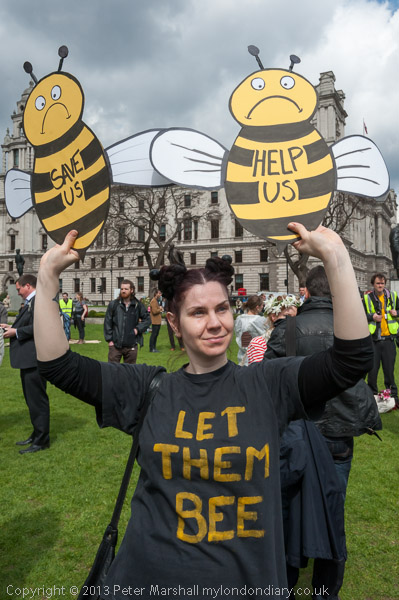
As well as bees, these pesticides also are a threat to all other pollinating insects. Around a third of food supplies around the world depend on plants being pollinated. They also effect birds, especially seed-eating birds as their major use is in seed coatings, but also by killing insects which birds rely on for food.
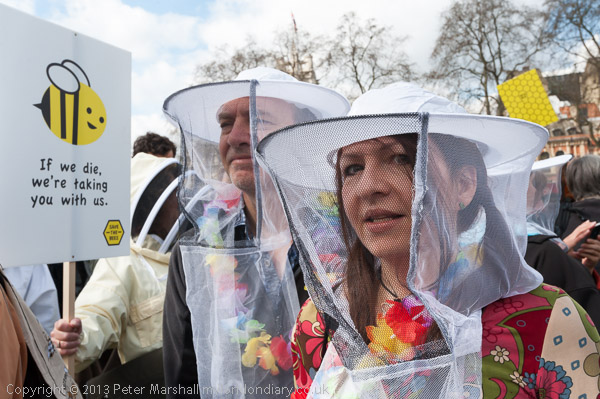
Neonicotinoids have also been found widely in our bodies – “in children, adults and neonates” but although large doses have been found to impair cognitive ability and memory in laboratory rats there is as yet no evidence that they are having any effect on us.
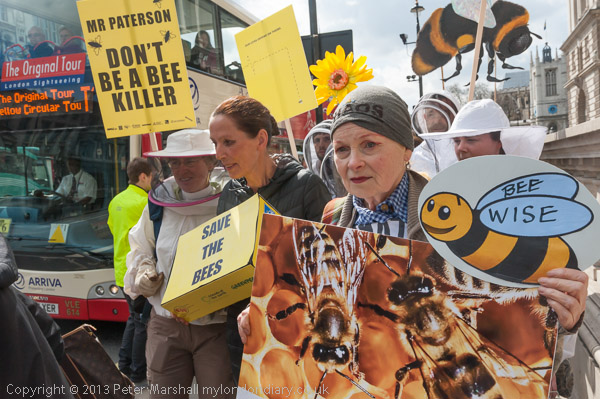
In April 2013 the EU voted to restrict their use across the EU for two years – though despite this protest Britain was one of eight states to vote against this. In 2018 the EU passed a total ban on the three main compounds, despite continuing strong opposition from the manufacturers and some farmers. There has been a general ban on their use in the UK since 2017, but until 2025 sugar beet farmers were given “emergency authorisations” for their use. Ending this was a Labour election pledge and it was confirmed by a government press release in December 2024.
More pictures at March of the Beekeepers.
Flickr – Facebook – My London Diary – Hull Photos – Lea Valley – Paris
London’s Industrial Heritage – London Photos
All photographs on this page are copyright © Peter Marshall.
Contact me to buy prints or licence to reproduce.
